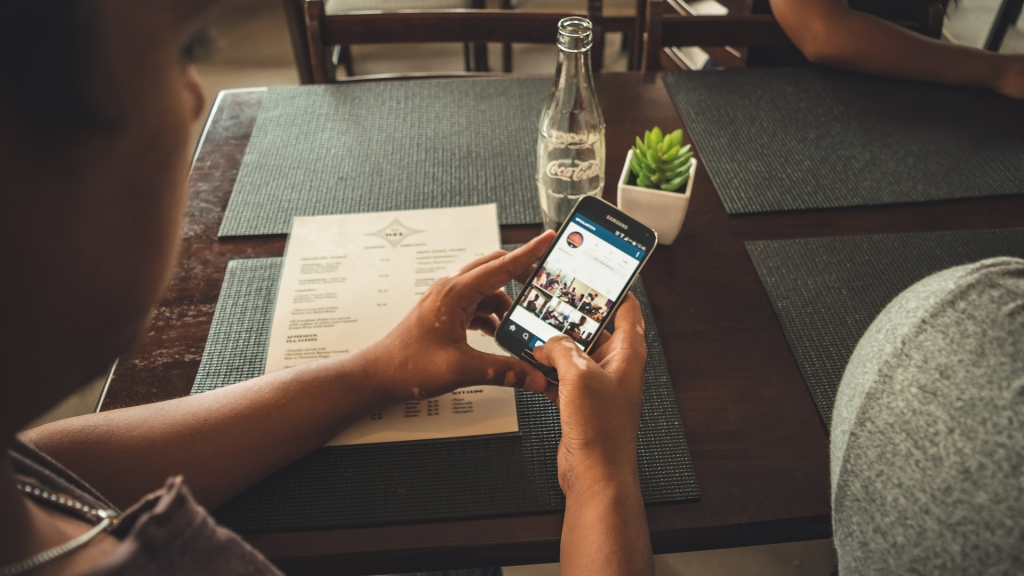
For anyone who has spent a considerable amount of time within the tech realm <raises hand>, the rate at which software has become a permanent fixture in modern day society is simply staggering.
‘Apps’ (the word ’software’ has all but been consigned to the history books) are now an intrinsic part of the world we occupy. They help us book taxis, track fitness goals and enable us to conduct entire grocery shopping trips with nothing more than a tablet computer.
They’ve even made our homes smart; “I’ve got an app for that!’ you say, as you reach into your pocket and impress your work colleagues with the magical ability to switch the heating on via your smartphone.
We live in a wonderful time where technology is still developing and making mistakes, yet regularly surprises us by offering tools that genuinely improve our lives. But what about the restaurant trade? If you’re a restaurateur, should you develop your own app?
Firstly, we should probably note that we’re not suggesting you get your hands dirty with code (unless you’re that way inclined). Thanks to a sizeable pool of freelance developers, small businesses can devise their own apps and have them made a reality without the kind of bank-busting investment that would have once been required.
With that in mind, and assuming you have some remaining budget burning a hole in your pocket, is it really worth throwing it into an app your diners can download and use on their smartphones?
We think it might be. Here’s why:
Restaurant apps are catching on
Among the many restaurant booking systems on the market, there’s a growing number of highly-inventive apps designed to improve the experience of eating out. The emergence of the Too Good To Go app, for example, illustrated the kind of latent revenue opportunities there are for restaurants and the new experiences guests can enjoy.
We love this infographic which neatly describes why restaurant apps are catching on. When boiled down, it’s all to do with convenience; customers can book via their mobile devices, billing is more secure for guests and easier to administer for restaurants and communication between customer and business can flourish.
This is starting to sound like a bandwagon worth jumping on, isn’t it?
Apps open up new channels of communication
Crowd review sites like TripAdvisor have driven something of a wedge between parting customers and the businesses they decide to review. How often has a diner left your restaurant only to leave a review that has you cursing the missed opportunity to quiz them directly about their experience?
Restaurant apps can have communication channels built directly into them, enabling restaurateurs to reach out to guests before they set their sights on TripAdvisor. Automated notifications to leave reviews on the restaurant website, or the ability to contact the guest via a messenger API provides opportunities to connect with customers like never before.
Analytical joy!
Are numbers, statistics and pie charts boring? Sometimes – absolutely, but not when they reveal hidden inefficiencies within your business. Nor are they dull when a particular stat demonstrates just how well one member of staff is performing.
Any restaurant app worth its salt should provide the business owner with actionable data that would be otherwise impossible to obtain. For example, if you have online booking integrated within the app, you should be able to view the peak booking times and demographics of those reserving tables. That’s powerful stuff.
Gathering data about your business is eminently easier if you have ultimate control over the software that does the collecting.
Increased brand recognition
If your restaurant app is your own, you can brand it in any way you see fit. And by encouraging diners to download it, you can place your brand front and centre whenever they pick up their phone. Bearing in mind people do this, on average, eighty-five times per day, you stand a pretty good chance of being noticed.
Final thoughts
It’s estimated that there will be 6.1 billion smartphones in use globally by 2020. That means more smartphones than fixed phone lines and a simply huge audience at which to pitch your restaurant business.
A presence on app stores should be considered a marketing venture, and if you pick the right software developer, you’ll create a digital experience your customers will instantly engage with.
If you’ve already invested in a restaurant app and would like to tell us your story, please do leave a comment below!


Leave A Comment